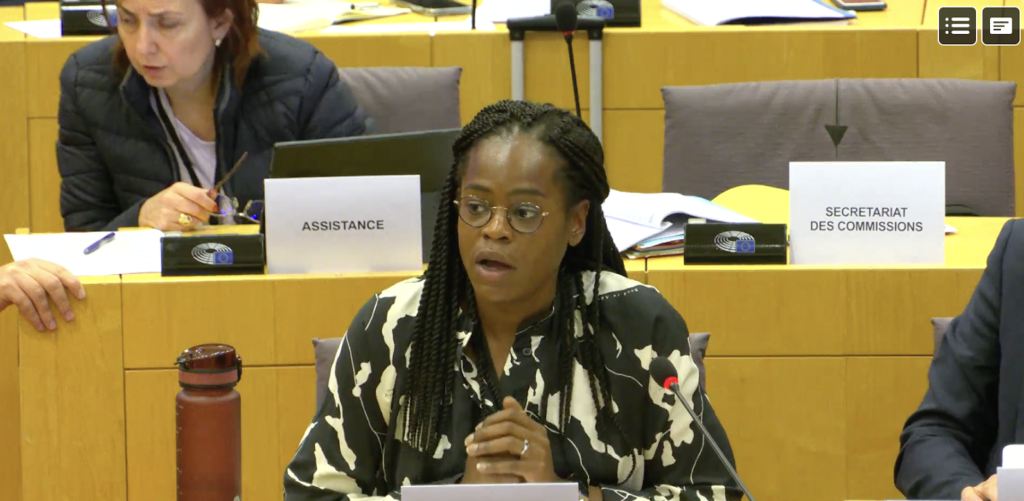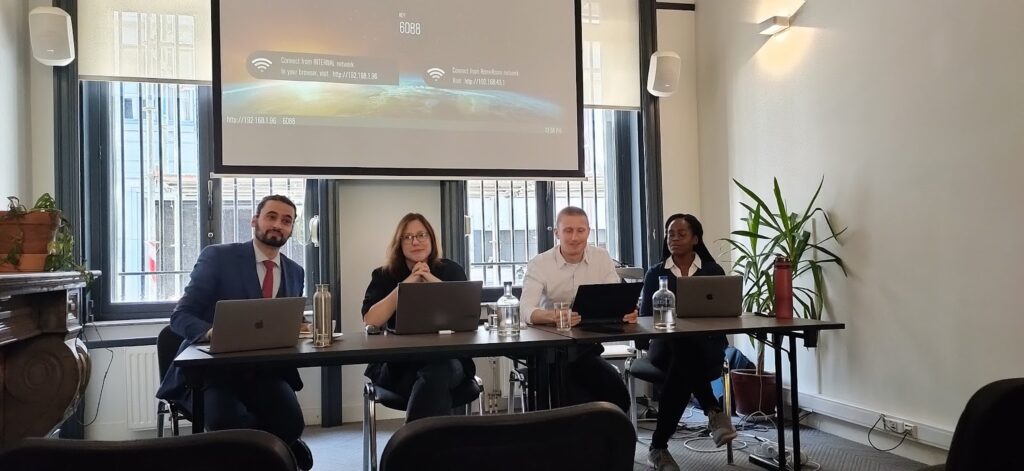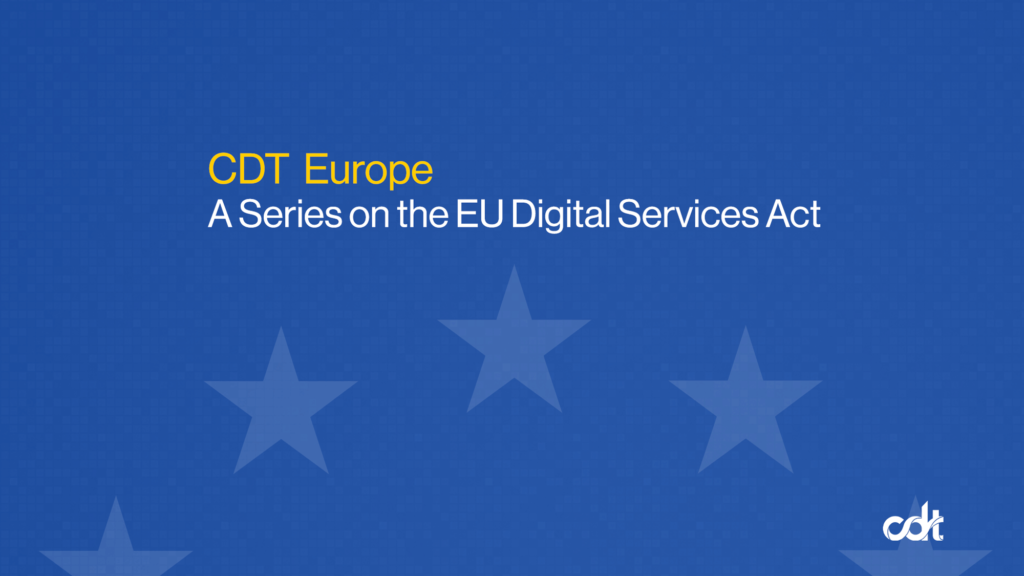AI Policy & Governance, European Policy, Free Expression, Privacy & Data
EU Tech Policy Brief: July 2022 Recap
This is the July 2022 recap issue of the Centre for Democracy & Technology Europe‘s monthly Tech Policy Brief. It highlights some of the most pressing technology and internet policy issues under debate in Europe, the U.S., and internationally, and gives CDT’s perspective on them. Our aim is to help shape policies that advance our rights in a digital world. Please do not hesitate to contact our team in Brussels: Iverna McGowan, Asha Allen, and Ophélie Stockhem.
CDT Europe Joins Parliamentary Hearing on Online Political Advertising
On 11 July, CDT Europe’s Asha Allen joined a hearing held by the Committee on Internal Market and Consumer Protection (IMCO) at the European Parliament. There, she discussed the main elements of the proposed Regulation on Transparency and Targeting of Political Advertising with IMCO members, stakeholders, experts, and researchers.
Allen outlined how the proposal could help address key concerns with political ads, including that using personal or sensitive data to target and microtarget these ads can cause harm to democracies, and raise specific risks for historically marginalised communities.
After offering her perspective on the provision of the proposal that seeks to prohibit targeted political advertising involving the processing of sensitive personal data, she reiterated how the provision’s proposed exemption clause would undermine the strength of the legislation and fail to address fundamental rights concerns. Allen insisted on the need to align the Regulation with the Digital Services Act, and reiterated the importance of having clear definitions and meaningful transparency obligations with the Regulation.

CDT Europe Raises Strong Concerns about CSA Proposal
In a new op-ed, CDT Europe Director Iverna McGowan responded to the European Commission’s new draft Proposal to prevent and combat child sexual abuse online. She highlighted strong concerns about the proposal’s scope and potential impact, which have been echoed by numerous civil society partners.
McGowan stressed that such legislation would negatively impact privacy and end-to-end encryption across Europe, particularly in countries where the Rule of Law is already under attack. She also insisted that lawmakers need to — and can — protect children in a holistic way, without putting in place a mass surveillance system that endangers the human rights of everyone: investigative journalists, human rights defenders, and even children themselves.
McGowan reiterated these concerns on 30 June at Forum Europe’s Child Safety Conference, where policymakers, industry players, national authorities representatives, and civil society experts gathered to review current EU initiatives tackling the online risks that children face.
Speaking at the last panel of the day, about current initiatives in the fight against online child sexual abuse material, McGowan outlined the risks stemming from the Proposal’s mandate that providers of online applications scan all communications. She also mentioned that the requirement would result in over-reporting of content, and have implications for fundamental rights.

CDT Europe and EPD Hold Roundtable on EU Proposal on Political Advertising
On 28 June, CDT Europe and the European Partnership for Democracy (EPD) organised a roundtable on the proposed Regulation on Transparency and Targeting of Political Advertising with participants from civil society organisations and EU institutions.
The event started with a closed discussion between civil society representatives on the main aspects of the proposal, followed by a semi-public roundtable focused on the definition of political advertising. Moderated by Fernando Hortal Foronda from EPD, a fruitful and organic exchange between lawmakers and other civil society organisations was held, with Asha Allen, Julian Jaursch from SNV, and Karolina Iwańska from ECNL contributing as expert panellists.

CDT Europe Launches Monthly Newsletter on AI
CDT Europe is happy to announce the official launch of our new monthly Artificial Intelligence Bulletin! In this new monthly resource, we aim to keep our readers informed about legal and policy developments on AI in Europe, such as the EU’s proposed Artificial Intelligence Act and the Council of Europe Committee on Artificial Intelligence’s process on a binding instrument on AI.
Why sign up? The bulletin will keep you up to speed with the latest news on AI in Europe, by summarising relevant policy developments in European institutions and their implications for Europe, fundamental rights, and our democracy.
Sign up to the AI bulletin here.
Digital Services Act Snapshot
After weeks of intense negotiations, the European Parliament adopted the final text of the Digital Services Act (DSA) at its Plenary session in July. The next step, expected in September, is for the European Council of Ministers to sign off on the text. The Parliament must now focus on clarifying the complex proposed enforcement regime, which creates governing bodies with new responsibilities, and thereby raises questions about the challenges ahead, particularly around how newly appointed Digital Services Coordinators will cooperate across borders.
As our very own Asha Allen wrote in Wired, the DSA and its extensive transparency and platform accountability obligations have the potential to set a gold standard for platform governance. The extent to which that occurs, however, will heavily rely on how adequate the resources are that the European Commission dedicates to implementing the proposal.
As collaboration with civil society is now expressly written into the law, CDT Europe will continue engaging with EU institutions to operationalise an innovative and bold approach to the enforcement mechanisms. In the meantime, we’re launching our blog series on the DSA, where we unpack aspects of this flagship online platforms regulation, particularly the obligations it imposes to tackle illegal content, its due diligence provisions, and its enforcement structure. You can read our first edition, which takes a look at how the DSA addresses illegal content online, here!

Don’t forget to check out CDT’s publications for this month!


